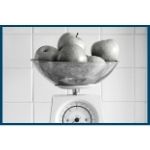Mood-Food connection
My friend Liz and I attended a workshop at the Longo’s Loft about Mood-Boosting foods for Optimum Health & Well-being (part 1). There is a part 2 at the end of March. The chef, Patricia Muzzi, has a guidebook with great recipes available, as well as versions specific for Teens and Corporations: http://www.moodfoodculinary.com/guidebook.php
The food was incredibly filling and tasted delicious! I’m looking forward to the next class and more delicious recipes. The one I’m trying this week with turkey left overs is baked Sweet Potato mini-sliders topped with Mango Cucumber salsa. Yum!! I also had the Sunny Citrus Smoothie and baked apple for breakfast but have yet to try making the Wild Salmon Black bean Roti wraps.
Some of the things that I learned in the workshop resonated with what I’ve been reading about in the “Skinny Gut Diet” by Brenda Watson. They key principles in Watson’s books is that the food you eat, and your mood (and cravings), go both ways (gut influencing brain and brain influencing gut) and are connected through the bacteria and microbes that live in your intestines (gross, I know). There’s enough detail on the subject to write a book (lol) but both the workshop and this book had some things in common:
- healthy fats and protein are the main components of your body and should be eaten at every meal;
- drink at least 1/2 your body weight (lb to oz) in filtered water every day. This includes herbal teas;
- there is more of your immune system in your digestive track than anywhere else in your body (which makes sense since that’s where most of the germs enter the body):
- excess carbohydrates (starch, sugar especially) can cause your body to create fat stores in your abdominal area (around your belly) and their availability and consumption in Western society is ubiquitous. It’s called SAD – the Standard American Diet – and is mostly comprised of salt, fat (omega 6 and trans fats) and sugar (high fructose corn syrup);
- carbs from grains (including wheat) can cause allergies, gas and/or bloating, and challenges with concentration – known to many as that mid-afternoon intense craving for baked goods followed by intense sleepiness or “brain-fog”;
- an unhealthy digestive system stimulates your immune system and leads to inflammation; and
- the outcomes of not getting your carb intake under control are all too familiar: diabetes, high blood pressure, high triglycerides and unhealthy ratios of cholesterol, gout (a form of arthritis), arthritis, cancer and alzheimer’s disease – all health issues rooted in inflammation.
- fibre helps to maintain blood sugar levels and “clear out” the intestines;
- following a detox regime regularly can help your liver to manage contaminants from food and environmental toxins that we absorb from eating, breathing and touching things;
- nutrients and vitamins are critical to your health and well being – calcium, selenium, iron and vitamins A,B,C,D and E, are a few that stood out for me as ones that are more commonly discussed. Where possible, get these from your food intake; and
- daily consumption of probiotics (Bifidobacterium and Lactobacillus) from fermented food and capsulated supplements are critical to your digestive health.
A few other interesting tips I learned from the workshop:
- add 1/2 lemon when juicing to slow absorption in the GI
- parsley and cilantro are great for liver detox
- a baked apple before bed can help you sleep
- anti-inflammatories help maintain blood sugar: cinnamon, cloves, nutmeg (taste great in baked apple)
- hempseed is a great additive for extra protein and healthy fats. Sprinkle on top, after cooking
- dates and figs have high fibre so not as much sugar affects as people think given the sweet taste and can be chopped up to add to the apple
